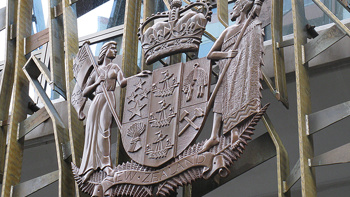OPINION: Each week, the NZ Herald and Newstalk ZB's Cooking The Books podcast tackles a different money problem. Today, it's how to start investing when you're a rookie. Hosted by Frances Cook.
I am a wage slave. I clock into work for a certain number of hours every day, and I am paid in return for those hours.
If I was to be fired unexpectedly, I'd be in big trouble.
Get into an accident that means I can't work? Big trouble.
Or, in a few decades from now when I want to retire, I'd currently be living hand to mouth.
I don't have an income apart from my job, and my savings cushion is quite small.
I'm not alone in this. Even if you're a good saver, don't be congratulating yourself too soon.
Stashing it away in your bank account isn't enough.
Interest rates are rock bottom, so you're probably barely keeping up with inflation.
Dip into that account a couple of times, get hit with fees, and you could easily be going backwards.
Over time, and done right, the overwhelming consensus is that you need to invest.
But just last week, many people will have had their fears confirmed when Auckland-based foreign exchange broker, Forex Brokers, collapsed.
The latest revelations are that it owes more than $10m.
Then again, last week also saw mortgage company Brilliant Finance referred to the Financial Markets Authority. And I don't see anyone running away from the idea of buying a house.
You just do your research, and bring in expert help when you need to.
It's like driving a car. You only needed to pay attention to the long weekend road toll to know it's a risky way to get around.
But we spend the time learning to drive, buy the safest car we can, then just accept that life has a certain amount of risk.
On balance, it's a better option than walking.
But if you're convinced to take the investing leap, the next problem is where do you even start?
I got in touch with Juno investing magazine editor Brenda Ward, for the latest episode of the Cooking the Books podcast.
She agreed that hoarding a large savings account wasn't the best use of your money.
"Putting it in the bank at the moment is not a great deal.
"Worldwide, interest rates have dropped dramatically, so you're lucky if you're getting four percent on a term deposit.
"But if you do invest in the stock market and are prepared for the kind of volatility that happens, then you probably will be getting a much better return."
She recommended talking to a financial advisor as a first step. They would take into account your age, stage of life, and how much risk you could stomach.
Financial advisors do cost, either through a flat fee, or commission on products that they sell you.
There are arguments for either way, with some feeling the flat fee keeps the advisor independent, and others arguing a commission gives the advisor an incentive to keep you earning more money.
Decide which you want, and then it's time to look at your investing options.
You don't need to be rolling in it to get into the share market. Even if you have $2000, there are options.
"You could go online and look at the index funds," Ward said.
"They're based on a group of different stocks, which will cover a wide range of diversification.
"You can go to New Zealand stock exchange Smart Shares.
"They offer a range of ETFs, which are Exchange Traded Funds.
"They trade just like normal shares, but you get diversification of an index tracking fund."
That might sound scary, but the jargon does get easier.
If you want to play with these options while keeping the training wheels on, you could always give virtual trading a whirl.
You can "buy" shares with credits, and track it as if you'd really bought it. You start to figure out how it all operates, what you like, and get ready to try the real thing.
A New Zealand version of virtual trading is available at https://virtualtrading.nzx.com/, or there's also http://www.investopedia.com/simulator/ for an American version.
While this is all very encouraging, there are good reasons why many New Zealanders are wary.
Ward said people had been spooked by crashes, including the 1987 crash, or the dotcom crash of the early 2000s.
Over time, investing still usually came out on top. But there were some warning signs to keep an eye on.
"If it looks too good to be true, it probably is," Ward said.
"So I'd be wary of, say, promised returns of 20 percent or more.
"If there's any pressure from a person who's trying to sell you an investment, then maybe step away.
"People who come to you saying 'I've got insider information', and approaches from strangers, they're pretty much always a scam.
"Be wary of phrases like 'this investment's for the wealthy, but I'm able to open it to you on this occasion'."
For the full interview, listen to the podcast.
If you have questions, comments, or ideas for future episodes, get in touch.
Facebook: https://www.facebook.com/FrancesCookJournalist/
Twitter: https://twitter.com/FrancesCook
Take your Radio, Podcasts and Music with you









